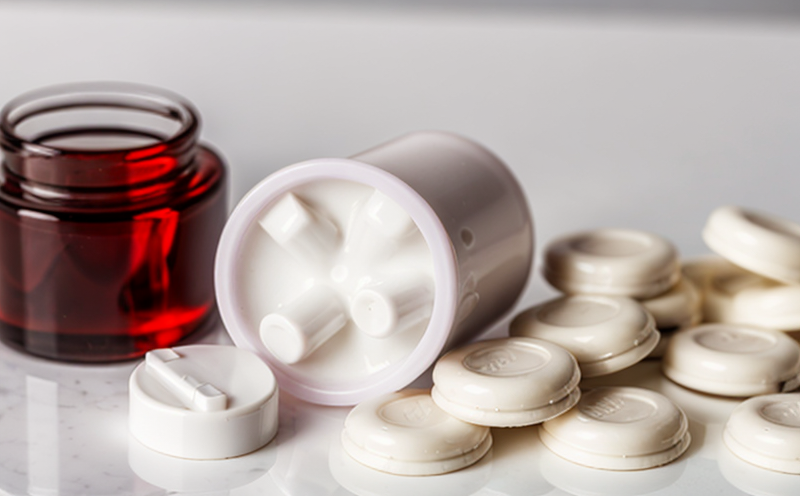USP Tablet Stability Under Temperature Testing
Understanding and ensuring drug stability is critical in pharmaceutical development. The United States Pharmacopeia (USP) sets forth specific guidelines for testing the stability of oral solid dosage forms, including tablets. This section focuses on USP Tablet Stability under Temperature Testing, which evaluates how well a tablet maintains its physical and chemical properties over time when subjected to different temperature conditions.
Stability testing is essential for ensuring that the drug product remains safe, effective, and of consistent quality throughout its shelf life. In this service, we follow stringent procedures based on USP Chapter 0931 to assess the impact of temperature variations on tablet stability. This testing is crucial for regulatory compliance and ensuring product quality.
The USP Chapter 0931 outlines a series of stability tests that are designed to simulate the real-world conditions under which tablets might be stored and used. This service ensures that your product meets these standards, thereby facilitating smoother compliance with regulatory bodies.
We use state-of-the-art equipment and follow meticulous protocols to conduct this testing. Our team prepares tablets according to your specifications, then subjects them to controlled temperature conditions over a specified period. After the test duration, we analyze the samples for changes in appearance, hardness, disintegration time, dissolution rate, and other relevant parameters.
By adhering to these rigorous procedures, our laboratory ensures that you have comprehensive data on how your tablets perform under varying temperatures. This information is invaluable for optimizing storage conditions, ensuring product stability, and maintaining compliance with regulatory requirements.
Applied Standards
The USP Chapter 0931 provides the framework for this service. Specifically, we follow the procedures outlined in Section <insert specific section>, which detail the temperature conditions and timeframes used during stability testing.
The USP standards are widely recognized globally, ensuring that our tests meet the highest quality and reliability benchmarks. Compliance with these standards is crucial for pharmaceutical companies aiming to ensure product safety and efficacy while navigating regulatory environments.
Scope and Methodology
| Test Parameters | Conditions |
|---|---|
| Initial Stability Testing | 4 weeks at 30°C/65% RH, 6 months at 40°C/75% RH |
| Accelerated Stability Testing | 6 months at 40°C/75% RH |
| Long-Term Stability Testing | 12 months at room temperature (25°C/60% RH) |
The testing begins with the initial stability phase, where samples are stored for four weeks at 30°C and 65% relative humidity. This phase provides an early indication of potential stability issues.
Following this, we conduct accelerated stability tests under more rigorous conditions (40°C/75% RH) to predict long-term stability over a shorter timeframe. These conditions are chosen based on the USP guidelines and are intended to simulate rapid degradation that might occur if tablets were exposed to higher temperatures or humidity levels.
The final phase involves long-term testing at room temperature for 12 months, providing a comprehensive overview of how your tablets perform under standard storage conditions.
Quality and Reliability Assurance
- We use only certified laboratory-grade equipment to ensure accurate temperature control.
- Our team follows strict protocols to maintain consistency in sample preparation and storage conditions.
- Data is collected at regular intervals throughout the testing process for comprehensive analysis.
- All results are documented meticulously, ensuring transparency and traceability of every test.
We employ rigorous quality control measures to ensure that our tests meet the highest standards of reliability. This includes periodic calibration of equipment, validation of procedures, and adherence to international guidelines. By doing so, we provide you with confidence in the accuracy and consistency of your testing results.





